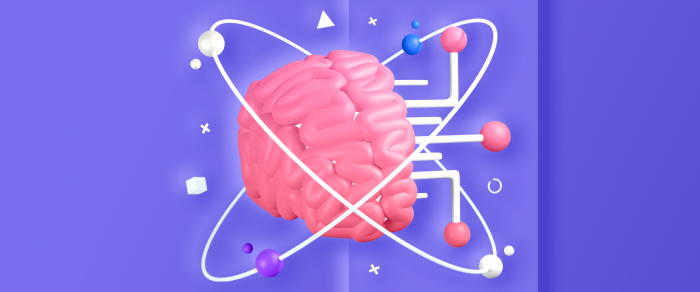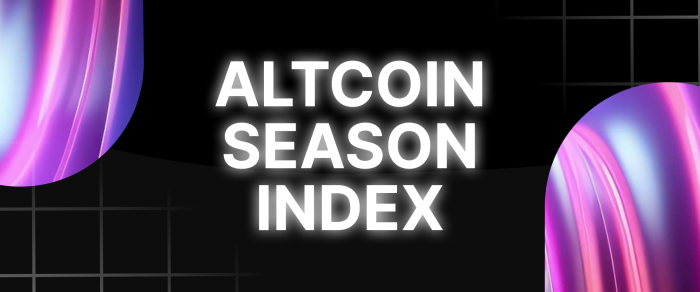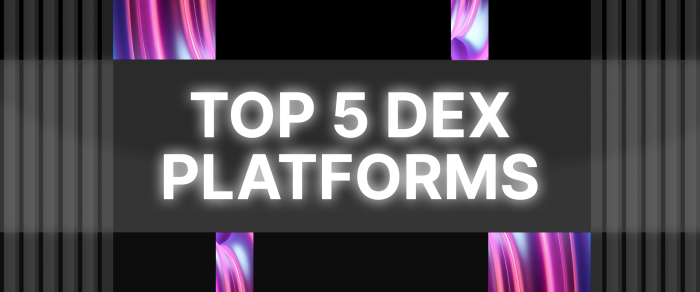Can Blockchain Technology Increase Trust in AI?
AI algorithms, which have been around since the first artificial neural network, the perceptron, was created in 1958, have become increasingly common. In fact, the number of AI models many organizations use has doubled, going from 1.9 in 2018 to 3.8 in 2022. Today, big tech companies like Google, IBM, and Microsoft, which provide AI services over the cloud, control most of the AI market.
This setup gives users little say over the AI products they use, and it could lead to a few companies controlling the whole AI market. If this happens, it could cause prices to rise unfairly, reduce trust and transparency, make it hard for different systems to work together, and limit the chances for smaller companies to contribute to AI development.
But there’s a promising change on the horizon: a new, decentralized AI market is emerging, combining two of the biggest technological sensations, blockchain technology, and AI, together.
In this article, we’ll explore one of the most talked-about topics in the AI market: can the blockchain industry improve trust in AI and lead to its fairer use?
Key Takeaways:
- AI mimics human problem-solving and decision-making using computers and data, driving innovation across industries.
- Blockchain is a secure and transparent ledger that enables decentralized data exchanges, enhancing trust and integrity.
- Decentralized AI (DAI) combines AI and blockchain, enabling secure and reliable decision-making, revolutionizing industries.
- AI and blockchain integration addresses challenges like data privacy, explainability, and promoting fairness, fostering trust and accountability.
What Is AI Technology?
Artificial Intelligence, or AI, is a fascinating field that uses computers, data, and machines to imitate the human brain’s problem-solving and decision-making abilities. It’s a broad concept that includes subsets like machine learning and deep learning. These innovative technologies utilize AI models to train data, helping to make predictions and classifications.
AI has numerous advantages that have a significant impact across various industries. It can automate decision-making processes and handle repetitive tasks, which reduces the chance of human errors. Additionally, AI is crucial in advancing other critical technologies like big data, the Internet of Things (IoT), and robotics, acting as the driving force behind their development.
However, in its current state, AI technology still has a few hurdles to overcome.
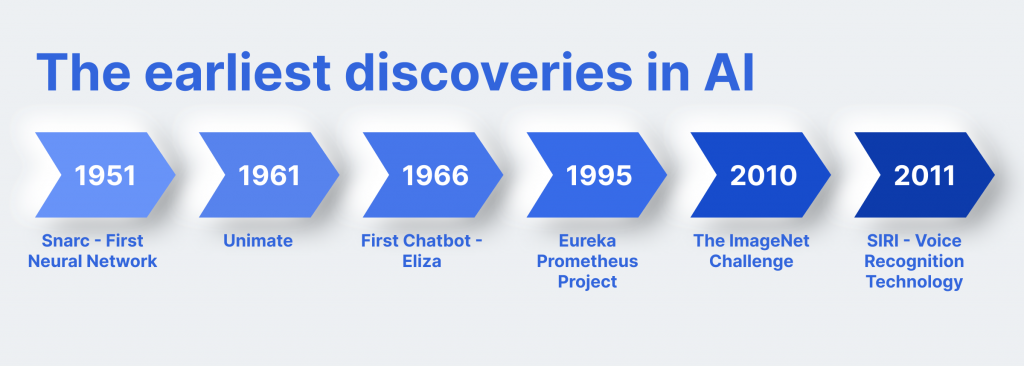
Current Problems With Artificial Intelligence
Currently, despite their impressive capabilities, AI appears to face a set of key challenges.
Trust becomes particularly tricky because algorithms often operate as “black boxes.” AI’s black box solutions mean that while we can see the data input and output, the internal decision-making process – how the AI reaches its conclusion from the given data – is hidden.
This lack of transparency can be a barrier to trust. It’s difficult for users to trust a system when they can’t understand or predict its decision-making process. Even AI developers and experts often can’t fully explain why an AI model made a certain decision or prediction. This opacity can lead to mistrust, especially in high-stakes situations where errors could have serious consequences.
Moreover, data privacy and security remain significant issues in the fast-paced world of AI. The nature of AI models is such that they require analysis of substantial amounts of data to produce accurate results. This requirement for data is at the core of AI algorithms’ functionality and precision. The data required can span a wide range, from everyday transactions to more sensitive information such as biometric data and personal details.
What Is Blockchain Technology?
Blockchain technology is an innovative system known for its immutable and shared ledger characteristics. This technology allows instantaneous, transparent exchange of encrypted data among different parties as they process and finalize transactions. A blockchain network can monitor a wide range of activities, including multiple transactions, orders, accounts, payments, and production processes.
The participants are granted access to share a singular perspective of the outcome. This shared view fosters trust and confidence in their transactions with other businesses and provides them with substantial efficiencies, insights, and opportunities.
Notably, blockchain is quite resilient against manipulation, deception, or hacking, which makes it an incredibly secure method of data storage. These features have led people to think that implementing decentralized ledger technology can revolutionize the AI industry. How exactly?
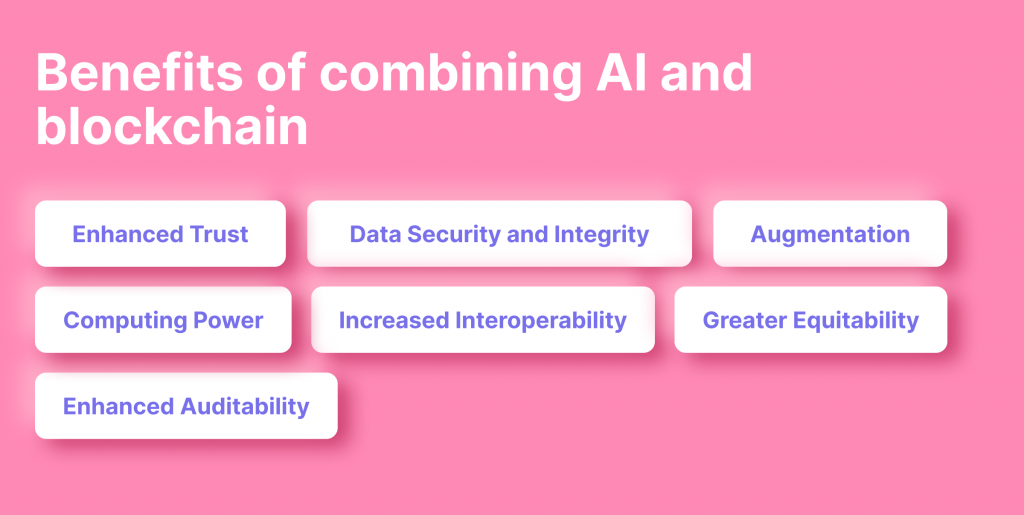
How Can Blockchain Technology Address AI Problems?
When AI and blockchain converge, it leads to the development of decentralized AI applications and algorithms. These programs benefit from a common, trusted data platform where they can store information, records, and the outcomes of their decisions. This unified platform is handy for keeping track of AI activities throughout their lifecycle – from the learning phase through the decision-making process and even after decisions have been made.
In the following sections, let’s take a closer look at the potential benefits of incorporating blockchain into AI.
- Enhanced Trust
One of the prominent issues many companies grapple with is establishing “trustworthy” AI. A recent survey by FICO and Corinium of approximately 100 North American financial services firms revealed that “43% of respondents stated they struggle with setting up Responsible AI model governance structures to meet regulatory requirements,” while only 8% reported their AI strategies to be fully mature and consistently scaled. This draws attention to the pressing issue of accountability, which impacts the trust people place in AI outputs.
To foster trust in AI, its workings need to be understandable. This clarity would instill more confidence in the reliability of AI outputs. Here’s where blockchain technology, with its unchangeable digital record, could help enhance comprehension of the AI framework and the data it uses, addressing the challenge of explainable AI. This approach could potentially boost trust in AI’s data integrity and, consequently, in the recommendations AI generates.
- Data Security and Integrity
Blockchain-backed AI technology provides more transparency than conventional, closed AI systems. Blockchains encrypt data, limiting access to authorized users only and preventing unauthorized parties from accessing any information. This enhanced security makes it easier to identify and counteract threats, as multiple nodes in the network can swiftly detect and address any anomalies.
The heightened security offered by a decentralized AI system could significantly benefit realms like the Metaverse. Blockchain’s transparency and accountability can foster trust between users and virtual entities in the Metaverse, a critical component for its growth and success.
- Augmentation
Blockchain can boost AI by providing access to internal and external data for an organization. This increased access to data could lead to more actionable insights, improved management of data consumption, and model sharing, potentially creating a more trustworthy and transparent data market.
- Automation
Merging AI and blockchain technologies could bring value to multi-party business processes by minimizing the need for human intervention.
Blockchain can eliminate potentially unnecessary third parties from multi-party transactions, theoretically increasing the speed and efficiency of these transactions. This streamlining could enable individuals to retain ownership of their data, with blockchain ensuring transaction process security.
- Computing Power
AI is a resource-intensive field, often demanding substantial computational power, which centralized data servers may struggle to handle. Distributed ledger technologies like blockchain could offer a solution by harnessing the computing power of numerous machines. This could help manage the computational demands of AI more effectively, further underlining the potential of this groundbreaking technology pairing.
- Increased Interoperability
Blockchain could also enhance interoperability among different AI models. With blockchain’s standard protocols, various AI systems could seamlessly interact and communicate with each other, ensuring smooth data transfer and collaboration. This could lead to more effective and efficient use of AI across different platforms and industries.
- Greater Equitability
Blockchain technology can democratize AI by decentralizing data ownership. In the current scenario, data is predominantly controlled by large corporations. However, blockchain can enable users to retain control over their data, contributing to a more equitable AI ecosystem. Users could opt to share their data for AI training purposes, potentially in exchange for benefits, fostering a sense of empowerment and control over personal data.
- Enhanced Auditability
Lastly, blockchain’s immutable nature ensures that all transactions and changes are permanently recorded, creating a clear audit trail. This can be particularly useful for AI models, as it allows for thorough examination and scrutiny of AI decisions and actions.
This feature not only boosts transparency but can also facilitate compliance with regulations, particularly in sectors where stringent oversight is required.
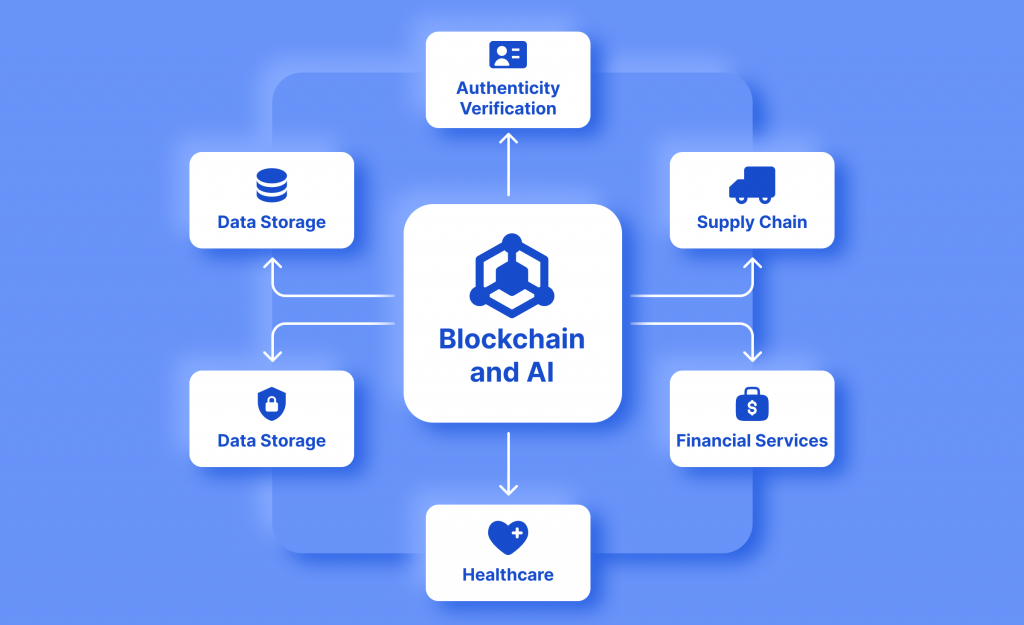
Potential Use Cases for Blockchain and AI
Let’s explore the potential use cases of blockchain and AI integration.
- Supply Chain Optimization
Blockchain and AI can join forces to revolutionize supply chains, making them more efficient and transparent. Smart contracts, powered by AI, can automate tasks like inventory replenishment based on specific conditions.
Additionally, blockchain allows real-time tracking of goods from production to delivery, reducing opportunities for fraud and optimizing inventory management. For example, in disaster relief efforts, this combination can aid in efficiently allocating resources.
- Enhanced Data Analytics
Blockchain technology assures unmatched data provenance, offering a secure platform for large-scale data analytics. AI and blockchain’s rich datasets can uncover broad trends and provide predictive analytics, empowering businesses and individuals to make informed decisions.
Furthermore, AI can optimize calculations for consensus algorithms in blockchain systems, reducing node latency and computational needs.
- Financial Services Reinvention
The intersection of AI and blockchain is transforming decentralized finance (DeFi). AI can perform tasks involving payments or economic exchanges using DeFi’s transparent services. Additionally, AI can develop automated investment strategies in DeFi applications, resulting in new, secure, and transparent financial services. Together, AI and blockchain can enhance compliance and fraud detection processes.
- Healthcare Transformation
Blockchain is perfect for storing sensitive data like health records, which AI can then analyze to identify patterns and make diagnoses. Data privacy can be maintained using techniques like homomorphic encryption.
The fusion of AI and blockchain can also facilitate the secure storage and sharing of patient records and medical research data, enabling effective collaboration among healthcare researchers while preserving data security.
- Environmental Sustainability
The combination of AI and blockchain could significantly contribute to environmental sustainability initiatives. AI can analyze vast amounts of environmental data stored on a blockchain to predict climate patterns, track species migration, or monitor deforestation. The transparency and immutability of blockchain can also enhance accountability in carbon trading markets, with AI facilitating the automation of carbon credit calculations and transactions.
- Education and Credential Verification
AI and blockchain could bring revolutionary changes to the education sector. For instance, educational certificates and credentials could be securely stored on a blockchain, ensuring their authenticity and permanence.
Conversely, AI could facilitate personalized learning experiences, adjusting educational content based on individual learning patterns. This combination could also automate the process of credential verification, simplifying admissions and job application processes.
- Decentralized Data Storage
The vast datasets that AI models rely on can be stored securely using blockchain-based decentralized storage solutions, such as Filecoin, IPFS, and Arweave. These solutions can maintain the integrity of training data, ensuring accurate results. Encrypted datasets can be utilized for training deep learning models without compromising privacy and confidentiality.
Thus, integrating blockchain-based storage into the AI framework enhances its security and reliability while promoting transparency and trust.
Is Decentralized AI (DAI) The Future Of AI?
The conversation around AI’s future is leaning towards something called Decentralized Artificial Intelligence, or DAI. This is a big change from how AI usually works. Instead of having one central control point, decisions in DAI are made based on agreement among many points in the network, which is more secure and open.
DAI is being seen as a safer and more trustworthy version of AI. It deals with many of the concerns people have about traditional AI models. The shift towards DAI could also make people trust AI more because of the extra layers of security and the open nature of the process.
We’re already starting to see new projects combining AI with blockchain, aiming to lead the way in this new industry. These projects are looking to take advantage of the benefits of both AI and blockchain while also trying to fix their shortcomings.
Let’s have a look at a few examples.
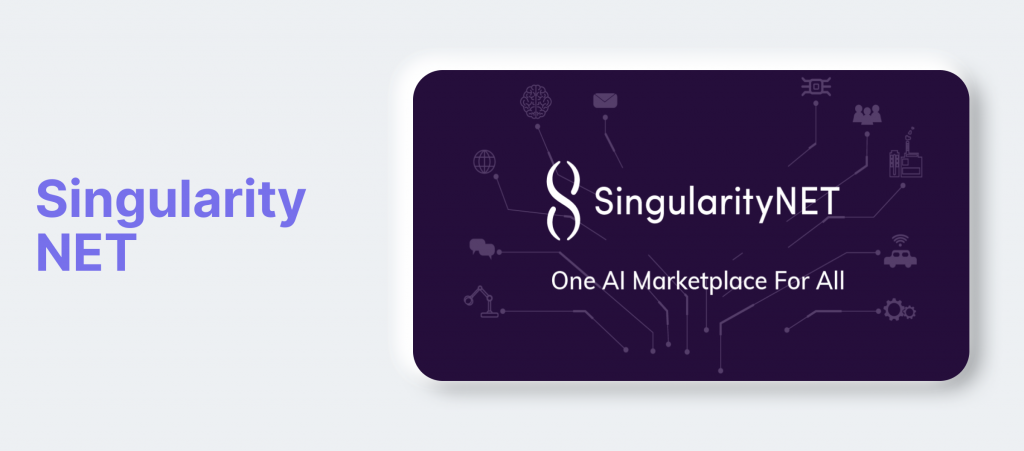
- SingularityNET
SingularityNET is one of the most innovative projects combining AI with blockchain. It aims to build a decentralized marketplace for AI. Developers and companies can create AI projects and sell their tools, data, services, and algorithms here.
SingularityNET also uses smart contracts and automatic agreements stored on the blockchain. This project is designed to work as a worldwide network for AI algorithms, making it one of the leading DAI initiatives.
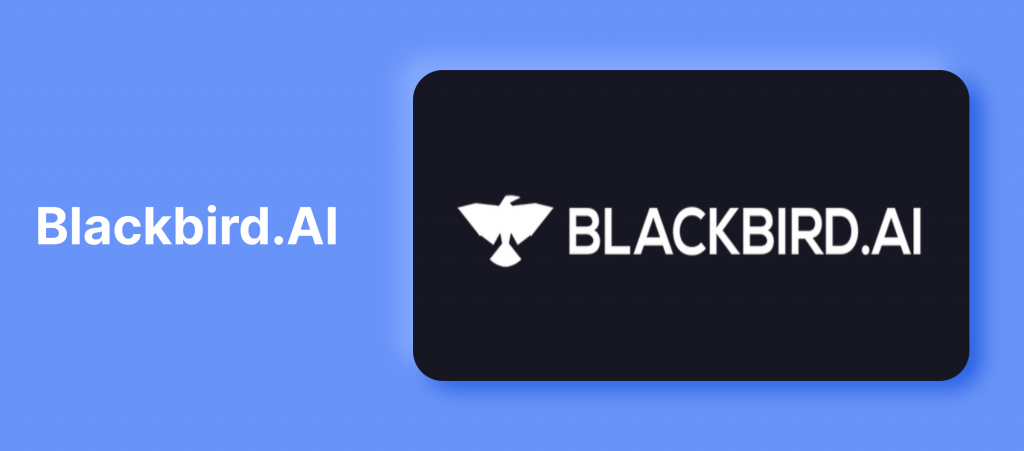
- Blackbird.AI
In the digital age, distinguishing real news from fake news can be challenging. Blackbird.AI is a project that uses AI and blockchain technology to analyze online content and check its credibility.
It works like a filter that separates genuine news from fake ones, thus preventing the spread of false information. The AI part of Blackbird.AI classifies content based on several reliability indicators, such as the presence of hate speech, misinformation, or satire.
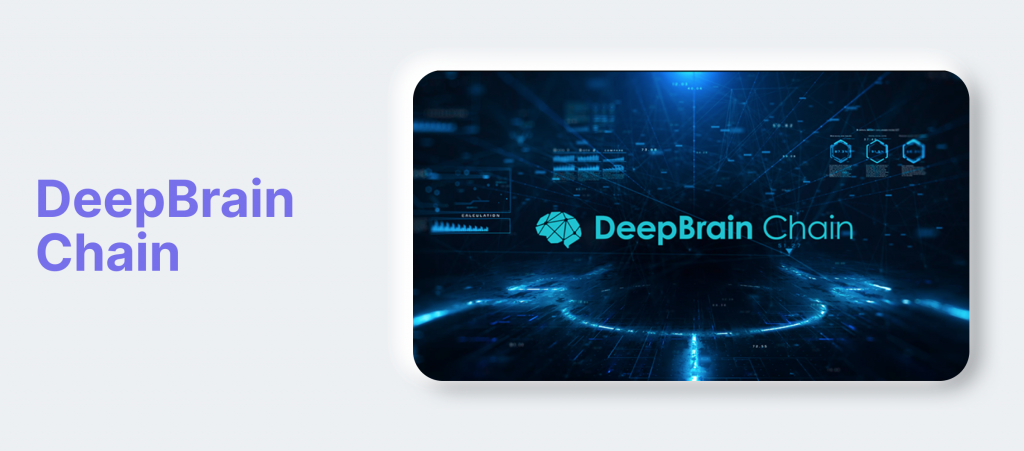
- DeepBrain Chain
DeepBrain Chain is another remarkable project that merges AI with blockchain. It is a decentralized AI computing platform that offers enhanced cost efficiency and data privacy. Essentially, it works as a decentralized neural network, providing a cloud computing network that supports AI model development.
The creators of DeepBrain Chain are dedicated to improving the blockchain governance system. It also offers secure data trading while improving data value and maintaining privacy. This is achieved by differentiating between data usage and data ownership.
The Bottom Line
Of course, the path toward Decentralized Artificial Intelligence, or DAI, isn’t as simple as a walk in the park. The key challenge is making this high-tech concept something everyone can use. For DAI to catch on, it needs to be straightforward like a smartphone – think clear instructions, easy-to-navigate designs, and a smooth user experience. Given how intricate these cutting-edge technologies are, this isn’t a small feat.
But let’s look at the bright side. We live in a world that’s always changing, and we’ve proven time and time again that we’re capable of keeping up with technological revolutions. With its promise of establishing trust and dependability, DAI seems like the sensible next step for artificial intelligence.
Drawing on the strengths of blockchain, DAI has the potential to become an extremely reliable and useful tool that can boost efficiency in countless industries and open up a world of exciting possibilities that we’re just starting to explore.
